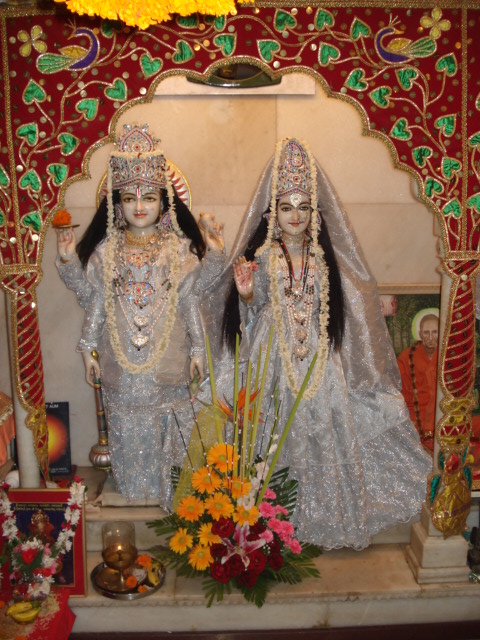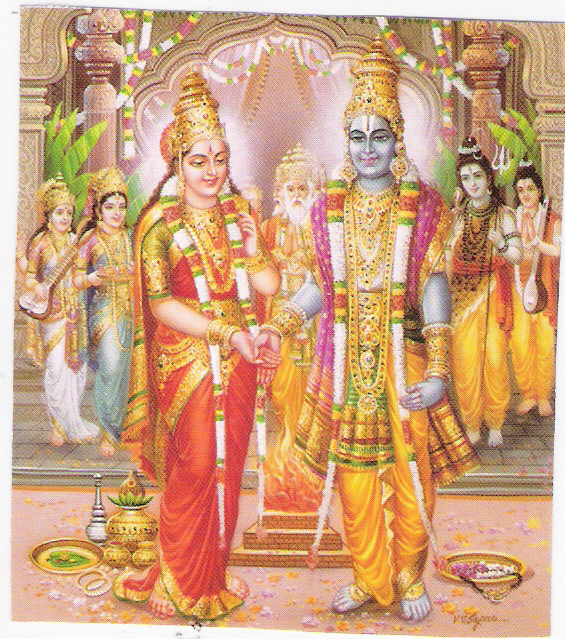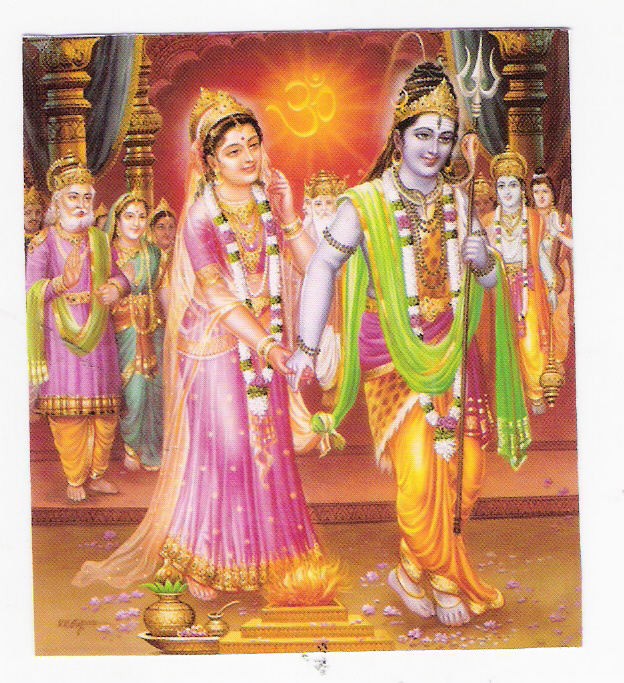Vivaah Ka Prayojan
The Purpose of Marriage
Vivaah Ka Prayojan
(Laxmi Narayan-at Guru Gangeshwar Dham-Mumbai)
From the book ‘Lekh aur Updesh’ Compiled in Hindi by Smt. Dhiruben
(Based on the Pravachan of 28-8-1938)
-To find out the purpose of marriage it would not be incorrect to seek answers in the context of the Shastras. Regarding marriage, Kalidas has said that Raghunandana kings married to procreate and not for any sexual indulgence. According to him marriage is meant to carry on the family lineage.
Ved Bhagwan also says in the Taitterya Upanishad (Valli-1 , Anuvakya 12, Mantra 1) ‘Do not ruin your lineage and to carry forward the family traditions, bear children.’
This throws light on the fact that children should be begot to carry on the name and tradition and not otherwise. Our ancestors have maintained our lineage and not brought it to a halt and thus we should also do the same.
Our ancestors gave us parents and the responsibility to see that we become parents too. If you do not carry forth this responsibility, our country will be attacked by foreigners. They reared brave young people and brought fame to our land and people. They have got us married to carry on the tradition. A country with a small population is susceptible to attacks. In France, the one who has several children is appreciated in society. Those who marry just for indulgence are sure to reach hell. They are re-born as moths and worms.
The second purpose of marriage is to control the natural instincts. A young boy and girl are attracted to each other. Humans can become like animals if these instincts are not harnessed or controlled. The constitution of marriage was thus brought about and this way there is harmony in society.
The third purpose is to merge the identity of the self (I) into the identity of all things. To see oneself in everything.
It is natural for a human to provide and take care of his body. He thinks he is the ‘body’ and lives his whole life to provide for it. After marriage, husband and wife think that they are one and not two bodies. The husband will stay hungry just to get his wife something. The wife will wait for her husband to share their meals. They sacrifice for each other. On the birth of the child they see their reflection in the child and provide for him and look after all his needs. Now this identity of the ‘self’ has included the whole family.
In great people, the identity of the self engulfs the whole creation. Marriage nourishes the emotion of sacrifice.
Selfishness is a human trait – selflessness is Bhagwad-bhav (divine emotion). When the self identifies with the universal identity then he is able to see the Lord in and through everything. Marriage brings a caring disposition and only a person with this equanimity can have Bhagwad-darshan. He starts loving everything and everyone in life, as he sees the Lord in all. This universal love is called Bhagwad prem.
An equanimous mind is just like the still lake on which the reflection of the sun can be seen. Yog or union with the Lord is the purpose of man. Marriage brings in love and the river of emotion which we can easily bend towards the Lord.
Once, one miser went to a saint and said that he was not able to find love in everything. The saint replied –“You are not qualified to love because you have no emotions. If emotions exist they could be maneuvered in any direction. A river which has no water and thus no movement, is of no use. A heart that is full of joy and emotion can have Bhakti and the love for the Lord can spring forth. A person, who is cold and dull, has no emotion and is like a desert where nothing blooms!”





